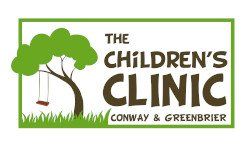October 26th, 2020:
When and how long to quarantine due to COVID-19 can get confusing! And it seems to change week by week as new information comes out. We have certainly had a lot of questions from parents, schools, and other institutions in regards to length of quarantine - for that reason we keep a centralized document that we update regularly to make sure all of our staff at both of our locations are using the most up to date information.
So let's look at a few scenarios:
1. If you test positive for COVID-19 you need to quarantine at home until either:
10 days after your positive test (only if you have no symptoms), or
10 days after your first day symptoms, AND your fever has resolved (without medication), AND your COVID symptoms are improving
And for school-aged children, the Arkansas Health Department or your child's school will need to "release" your child to return to school.
2. A lot of confusion has come up lately about this next scenario - what if your child had COVID and plays sports? Well, the health department has specific guidelines for "return to sports" post-COVID. Although the guidelines can get complicated, at minimum your child can't be cleared for sports until 10 days after their positive COVID-19 test if they had no symptoms or, if they did have symptoms, 14 days AFTER their symptoms have resolved. And if your child has or had some heart related symptoms they will likely need a more extensive work-up.
We have had to correct some school officials and health department officials on this point (after confirming with the Health Department's physicians). Athletes can return to school after 10 days of quarantine (plus IMPROVING symptoms and no fever) but can't return to sports until their symptoms have been RESOLVED for 14 days.
3. What if your child was exposed at school via a close contact (less than 6 feet for more than 15 minutes)? Your child would then need to quarantine for 14 days starting from the day after their last day of exposure - in other words they would need to quarantine without exposure to someone who has coronavirus for a full 14 days.
Remember (and this is an area I have heard multiple schools get incorrect) - if your child is exposed to COVID-19 and then tests negative, your child still needs to quarantine for the full 14 days as some patients take longer to turn positive.
4. Finally, what if someone in the home has COVID-19? If this person can be isolated from others in the home then everyone's first day of their 14-day quarantine would be the day after the person who has COVID-19 goes into isolation. However, for many families being isolated in the home away from family members or having the rest of the family go live somewhere else temporarily simply isn't an option.
So what should you do in that situation? The entire family (COVID positive person and exposed family members) would need to quarantine at home and those exposed would need to quarantine an additional 14 days after the COVID-19 positive person leaves their quarantine. So, for example, if Dad has COVID-19 (positive test or first day of symptoms) on Oct 1st then, assuming he can leave quarantine after 10 days, he would leave quarantine on Oct 10th. Mom and Junior would quarantine with Dad (isolate as best you can!) but would need to quarantine an additional 14 days (Oct 11th - Oct 25th) since their LAST day of exposure was the day Dad's quarantine ended (so their first day of exposure-quarantine would be the day after Dad leaves quarantine). So Mom and Junior would quarantine from Oct 1st through Oct 25th.
The CDC has example scenarios as well:
https://www.cdc.gov/coronavirus/2019-ncov/if-you-are-sick/quarantine.html
There are many nuances to the above scenarios. Our nurses always have the latest information available to them and they know when to find one of the doctors when they are not sure what the best recommendation is - so feel free to call The Children's Clinic of Conway and Greenbrier if you have any questions about current COVID policies! We are open Monday through Friday and Saturday mornings and are happy to help and advise!
Chris Killingsworth, MD
The Children's Clinic of Conway and Greenbrier

